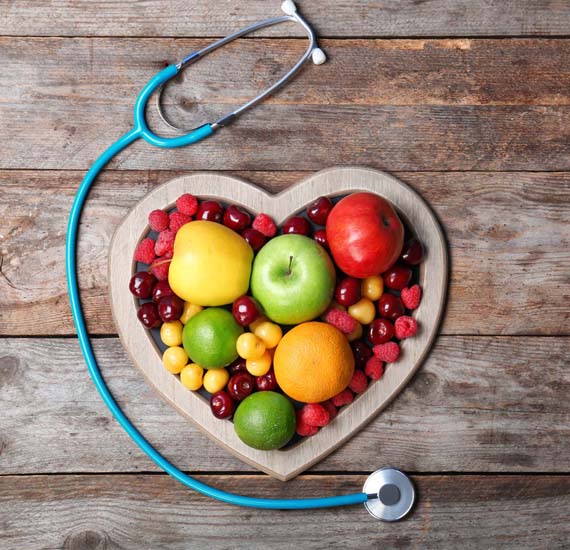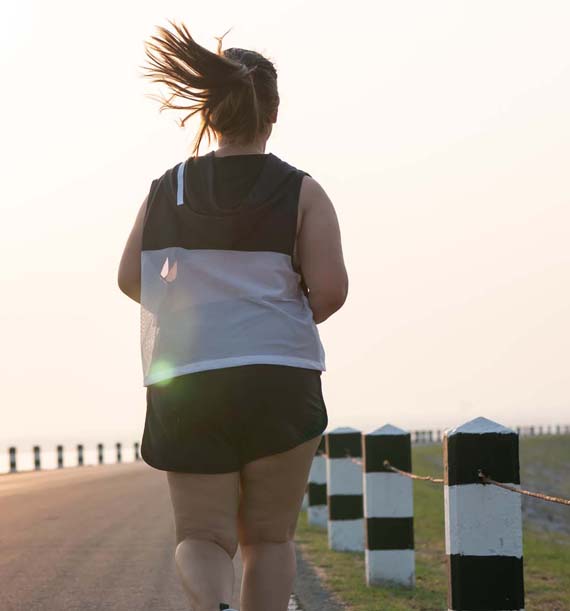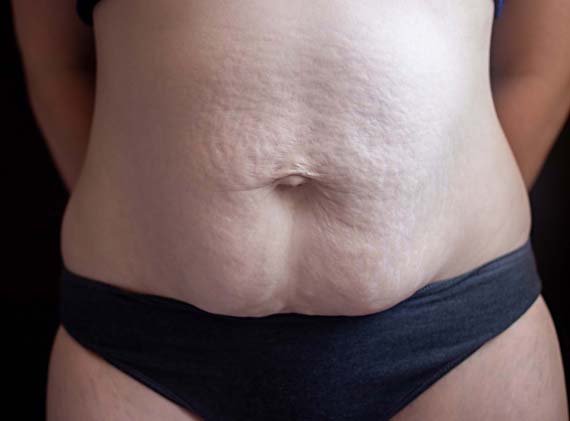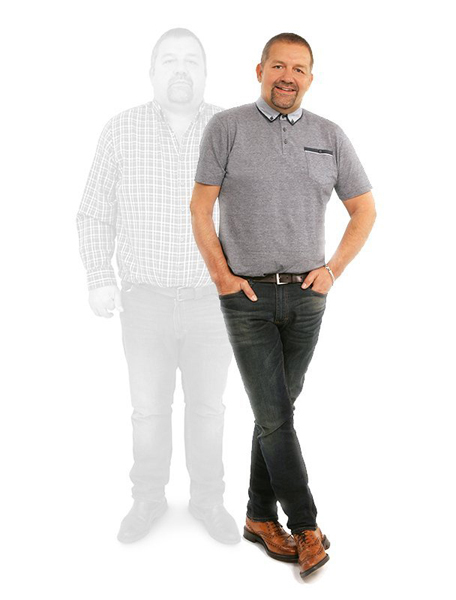Many people have problems with their weight and body shape. These are very common problems and can result in a lifelong battle.
Being overweight inevitably leads to poor physical health and sometimes, low self-esteem and unhappiness.
Conditions such as high blood pressure, diabetes and high cholesterol frequently develop and can lead on to more serious illnesses such as heart disease and strokes.
Depression and personal or relationship difficulties can also arise due to the psychological toll of being overweight. Feelings of hopelessness about the situation often fuel a ‘comforting’ vicious circle of excessive eating.

Many people have problems with their weight and body shape. These are very common problems and can result in a lifelong battle.
Being overweight inevitably leads to poor physical health and sometimes, low self-esteem and unhappiness.
Conditions such as high blood pressure, diabetes and high cholesterol frequently develop and can lead on to more serious illnesses such as heart disease and strokes.
Depression and personal or relationship difficulties can also arise due to the psychological toll of being overweight. Feelings of hopelessness about the situation often fuel a ‘comforting’ vicious circle of excessive eating.
 Sarah Twinn2021-04-08This is honestly the best diet i have been on and i have tried many and failed! I originally spoke with Chris who told me about the diet and really caught my interest and after lockdown putting on weight i really wanted to get it off! the staff are so friendly and professional and always are at hand to help with any queries, the ordering systems is so easy and simple to use thank you to everyone at the clinic especially Chris, Natalie and Allison its been amazing would defiantly recommend this to anyone trying loose weight and get healthy
Sarah Twinn2021-04-08This is honestly the best diet i have been on and i have tried many and failed! I originally spoke with Chris who told me about the diet and really caught my interest and after lockdown putting on weight i really wanted to get it off! the staff are so friendly and professional and always are at hand to help with any queries, the ordering systems is so easy and simple to use thank you to everyone at the clinic especially Chris, Natalie and Allison its been amazing would defiantly recommend this to anyone trying loose weight and get healthy Gillian Hansom2020-10-16I started this journey at The Silverlink after trying for 2 years, to loose even a couple of pounds. I was a little sceptic, at how this will work and would it work for me. Well after 12 fast weeks, 2 stone has gone. I feel the time has gone by quickly, with every week having positive results. I never had the need or want to cheat as I always felt satisfied. The treatments at the clinic was carried out by lovely professional ladies, who always had time to chat about any concerns. I would defiantly recommend to give this ago, it will work. They have shown they are committed to being COVID safe, taking time to ensure yours and their safety.
Gillian Hansom2020-10-16I started this journey at The Silverlink after trying for 2 years, to loose even a couple of pounds. I was a little sceptic, at how this will work and would it work for me. Well after 12 fast weeks, 2 stone has gone. I feel the time has gone by quickly, with every week having positive results. I never had the need or want to cheat as I always felt satisfied. The treatments at the clinic was carried out by lovely professional ladies, who always had time to chat about any concerns. I would defiantly recommend to give this ago, it will work. They have shown they are committed to being COVID safe, taking time to ensure yours and their safety. Eric Gradwell2020-03-03The staff were great. Its tough but the reward fantastic. Thanks Alison and gang.
Eric Gradwell2020-03-03The staff were great. Its tough but the reward fantastic. Thanks Alison and gang. Steve Davis2019-11-27I have lost 6 stone in 18 weeks with Silverlink. To be honest, the results have changed my life enormously (I would think this applies to others that have done the same). I would recommend this to anyone that wants to truly lose weight. I would like to thank everyone at Silverlink for all the support they have given me. It is not just the "treatment” but also the back up support. The clinic I attended was very supportive, professional and a driver to achieve my goal. Thanks again to you all
Steve Davis2019-11-27I have lost 6 stone in 18 weeks with Silverlink. To be honest, the results have changed my life enormously (I would think this applies to others that have done the same). I would recommend this to anyone that wants to truly lose weight. I would like to thank everyone at Silverlink for all the support they have given me. It is not just the "treatment” but also the back up support. The clinic I attended was very supportive, professional and a driver to achieve my goal. Thanks again to you all Lisa Thirlaway2019-10-04From the first phone call to the clinic I felt reassured. The support that I received along the way was excellent, professional, discreet and helped guide me along my personal bumpy journey. I started weighing 15 stone 6 now I am 12 stone 7 I feel amazing and know that I have the support from good people as I’m now in maintenance. I cannot believe the number of complements about my change that I am receiving from people I barely know and I’m proud to say who helped me get there. Thank you Silverlink clinic you are all fantastic.
Lisa Thirlaway2019-10-04From the first phone call to the clinic I felt reassured. The support that I received along the way was excellent, professional, discreet and helped guide me along my personal bumpy journey. I started weighing 15 stone 6 now I am 12 stone 7 I feel amazing and know that I have the support from good people as I’m now in maintenance. I cannot believe the number of complements about my change that I am receiving from people I barely know and I’m proud to say who helped me get there. Thank you Silverlink clinic you are all fantastic. Fi Kidd2019-09-15I have been at Silverlink Newcastle for 6 months and have lost nearly six stones. The staff are lovely and supportive and the doctors listen to what you say. I struggled for a while as I have a very active job but the staff listened to my problems and adapted the plan for me accordingly. I have been trying to loose weight for 40 years and this is the first time I have been successful. Thank you
Fi Kidd2019-09-15I have been at Silverlink Newcastle for 6 months and have lost nearly six stones. The staff are lovely and supportive and the doctors listen to what you say. I struggled for a while as I have a very active job but the staff listened to my problems and adapted the plan for me accordingly. I have been trying to loose weight for 40 years and this is the first time I have been successful. Thank you Robbie Heslop2019-03-07There are a million and one things that I could put down as valid reasons as to why the Silverlink Clinics has not just helped me to lose weight, but has also had a vast effect on other things that I medically have, including anxiety and transitioning from borderline diabetic, to no longer being near that borderline. The whole team at the branch that I was at - Newcastle - are so welcoming and are always positive and kind towards you, however I would assume the same for each branch for the work they do. The treatment is very effective and if you decide to use the Silverlink Clinics, you are not losing out on a very much fantastic choice for your personal health. During your treatment, the staff have a broad and impressive knowledge about how the diet plan works and alongside your actual treatment sessions, support from the clinic via telephone is given. Also, the staff are always easily accessible in case you wish to call during your treatment with any worries or questions that you may have. All who work at the clinic are always ready to ensure that you follow the diet plan correctly and that the support is there to help you make the best outcome for yourself. You also have guidance to help maintain your new weight once the treatment is finished. Giving a five star rating, from my personal experience, is only half of the rating I feel necessary, as I now have a new weight and most likely now a higher chance of living life longer.
Robbie Heslop2019-03-07There are a million and one things that I could put down as valid reasons as to why the Silverlink Clinics has not just helped me to lose weight, but has also had a vast effect on other things that I medically have, including anxiety and transitioning from borderline diabetic, to no longer being near that borderline. The whole team at the branch that I was at - Newcastle - are so welcoming and are always positive and kind towards you, however I would assume the same for each branch for the work they do. The treatment is very effective and if you decide to use the Silverlink Clinics, you are not losing out on a very much fantastic choice for your personal health. During your treatment, the staff have a broad and impressive knowledge about how the diet plan works and alongside your actual treatment sessions, support from the clinic via telephone is given. Also, the staff are always easily accessible in case you wish to call during your treatment with any worries or questions that you may have. All who work at the clinic are always ready to ensure that you follow the diet plan correctly and that the support is there to help you make the best outcome for yourself. You also have guidance to help maintain your new weight once the treatment is finished. Giving a five star rating, from my personal experience, is only half of the rating I feel necessary, as I now have a new weight and most likely now a higher chance of living life longer. Ji Pe2019-02-28The staff are very helpful and knowledgeable and there is also the added phone backup to make sure your happy with how your treatment is progressing. Never felt hungry throughout the treatment and always different ways to make the meals different. Would be wrong to pick out individuals as all were fantastic and because of this I have no problem with recommending the Newcastle Silver link clinic. Jim Peters
Ji Pe2019-02-28The staff are very helpful and knowledgeable and there is also the added phone backup to make sure your happy with how your treatment is progressing. Never felt hungry throughout the treatment and always different ways to make the meals different. Would be wrong to pick out individuals as all were fantastic and because of this I have no problem with recommending the Newcastle Silver link clinic. Jim Peters Jacqui Bradley2018-09-28Staff are very friendly and have made me feel comfortable and helped me achieve my goal.
Jacqui Bradley2018-09-28Staff are very friendly and have made me feel comfortable and helped me achieve my goal.
Based on our 18 years experience, there have been no satisfactory solutions offered to people with weight problems.
With general dietary advice and following the usual methods of dieting, we can all lose a few pounds; however, such weight loss is often a slow and difficult struggle.
The slow speed of weight loss, the constant hunger and lack of energy, which occur as a result of most weight loss programmes can be very demotivating
Few of us have the willpower to follow a dietary regime for as long as necessary to achieve a healthy weight.
Trying to lose weight is a struggle, sometimes we try to take things to an extreme. We reduce our food intake further, but the more we do this, the more our body is forced into making the energy saving adjustments that occur during starvation which actually slows our weight loss.
Starvation is a survival mechanism and the body adapts to starvation by reducing the rate of its resting metabolism. This the opposite of what we want to happen when we are trying to lose weight.

Few of us have the willpower to follow a dietary regime for as long as necessary to achieve a healthy weight.
Trying to lose weight is a struggle, sometimes we try to take things to an extreme. We reduce our food intake further, but the more we do this, the more our body is forced into making the energy saving adjustments that occur during starvation which actually slows our weight loss.
Starvation is a survival mechanism and the body adapts to starvation by reducing the rate of its resting metabolism. This the opposite of what we want to happen when we are trying to lose weight.
As we reduce our food intake, weight loss progressively becomes more difficult. During the process of starvation, the body starts to rapidly break down its own muscle tissue, in order to obtain sufficient protein which it needs for many essential functions.
This may result in a weight loss on the scales, but a weight loss comprised of muscle, as well as fat.
When we allow the body to break down its muscle tissue in this way, the body gets into a progressively unhealthier state.

As we reduce our food intake, weight loss progressively becomes more difficult. During the process of starvation, the body starts to rapidly break down its own muscle tissue, in order to obtain sufficient protein which it needs for many essential functions.
This may result in a weight loss on the scales, but a weight loss comprised of muscle, as well as fat.
When we allow the body to break down its muscle tissue in this way, the body gets into a progressively unhealthier state.
Previously stretched skin will often become slack, baggy and unsightly, when a significant amount of weight has been lost. Once it has been stretched by weight gain, skin is not so elastic that it will automatically spring back into place.
Unfortunately, exercise does not help, as there are no muscles in the skin that we can exercise. Weekly Alevere treatments help reduce the risk of saggy skin to ensure the best possible cosmetic result.

Previously stretched skin will often become slack, baggy and unsightly, when a significant amount of weight has been lost. Once it has been stretched by weight gain, skin is not so elastic that it will automatically spring back into place.
Unfortunately, exercise does not help, as there are no muscles in the skin that we can exercise. Weekly Alevere treatments help reduce the risk of saggy skin to ensure the best possible cosmetic result.
Very drastic and expensive surgery is often promoted as a solution to weight problems, and many people may feel that they have no choice, except to resort to these procedures.
Liposuction, abdominal wall reshaping (abdominoplasty), gastric banding, ballooning, stomach stapling and gastric bypass surgery have all become commonplace.
Such surgical procedures involve potentially serious risks to the patient. They are also very costly, unpleasant, invasive and not always effective, with many patients failing to achieve the weight loss that they require and regaining weight after such procedures.
These procedures can cause unpleasant and sometimes debilitating symptoms for the patient, such as bloating, nausea, bowel upset, abdominal cramps and abdominal pain, especially after eating. Such unpleasant adverse effects can be prolonged, or even permanent.
Alevere is a weight loss treatment for those who want a drug and surgery free weight loss solution.
Copyright Alevere Nutrition - 2024 All Rights Reserved

Best thing since a slice of cake.! After seeing a picture of myself at Christmas 2015, l decided to do something so l took the plunge and phoned Alevere. Hard bit done, the diet is simple, follow it as advised, and watch the pounds fall off, and they literally did. The hardest thing is walking through the doors, but remember everyone there is in your shoes. I feel 21 again.
Ian Kitchingman
Click the button below to continue with your registration: